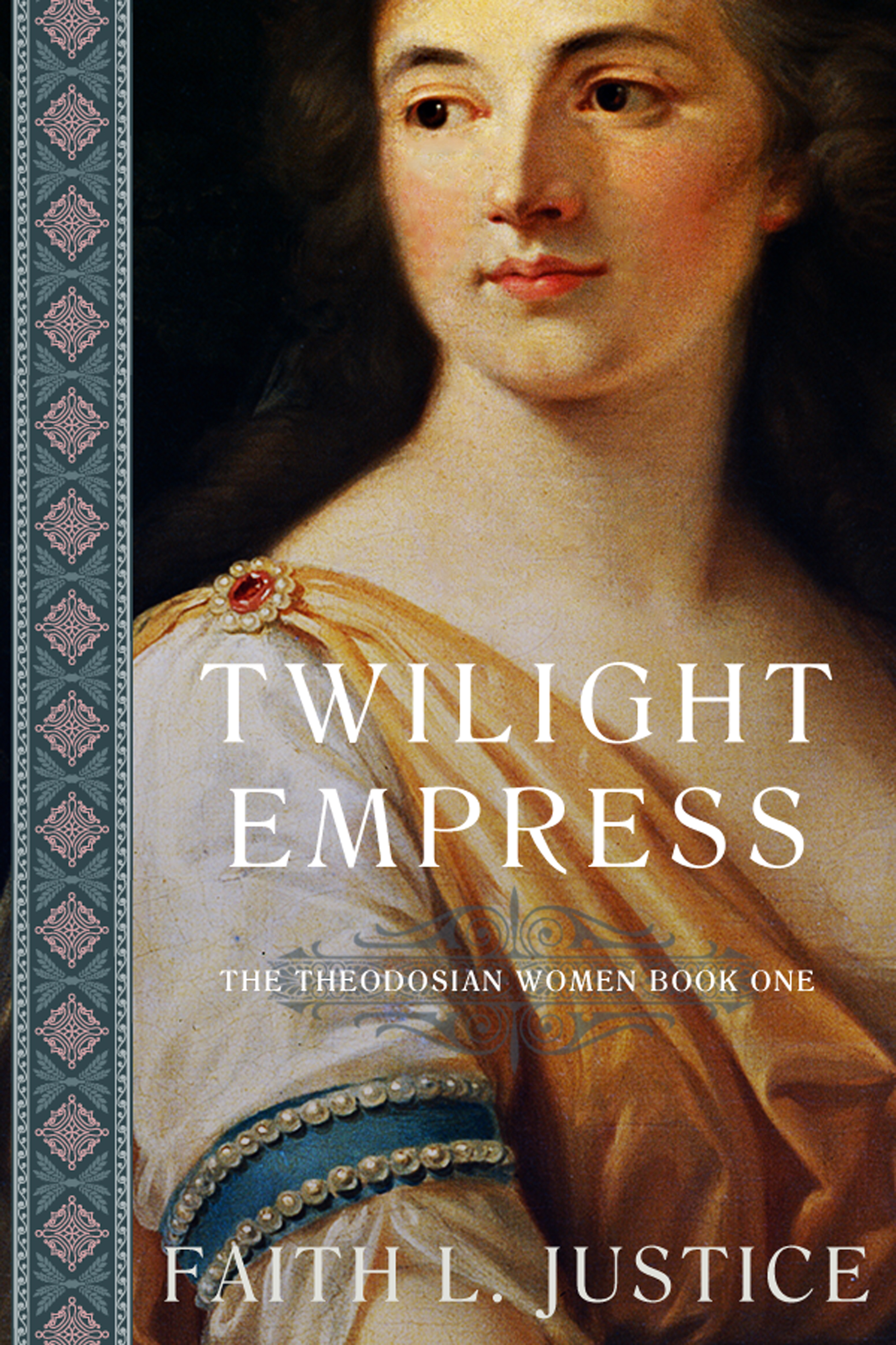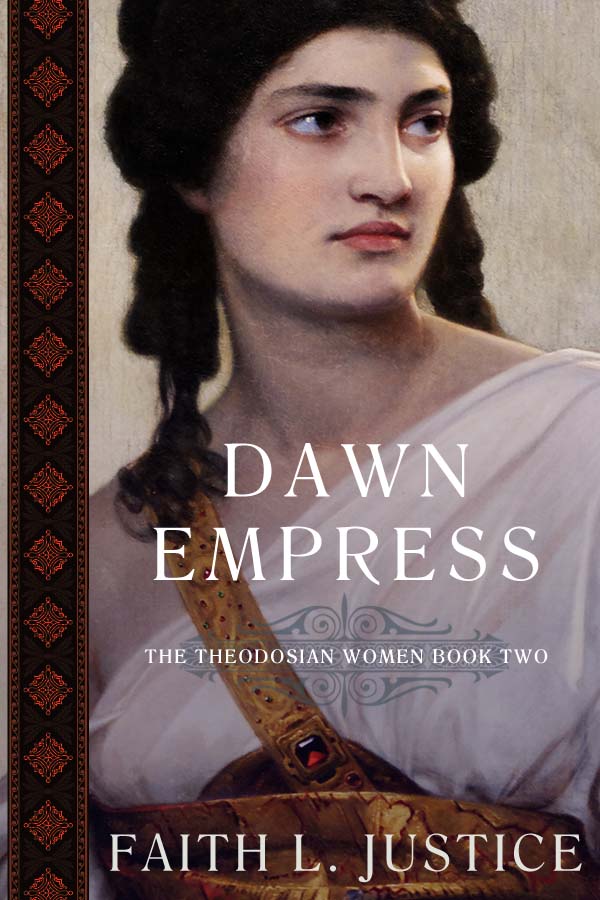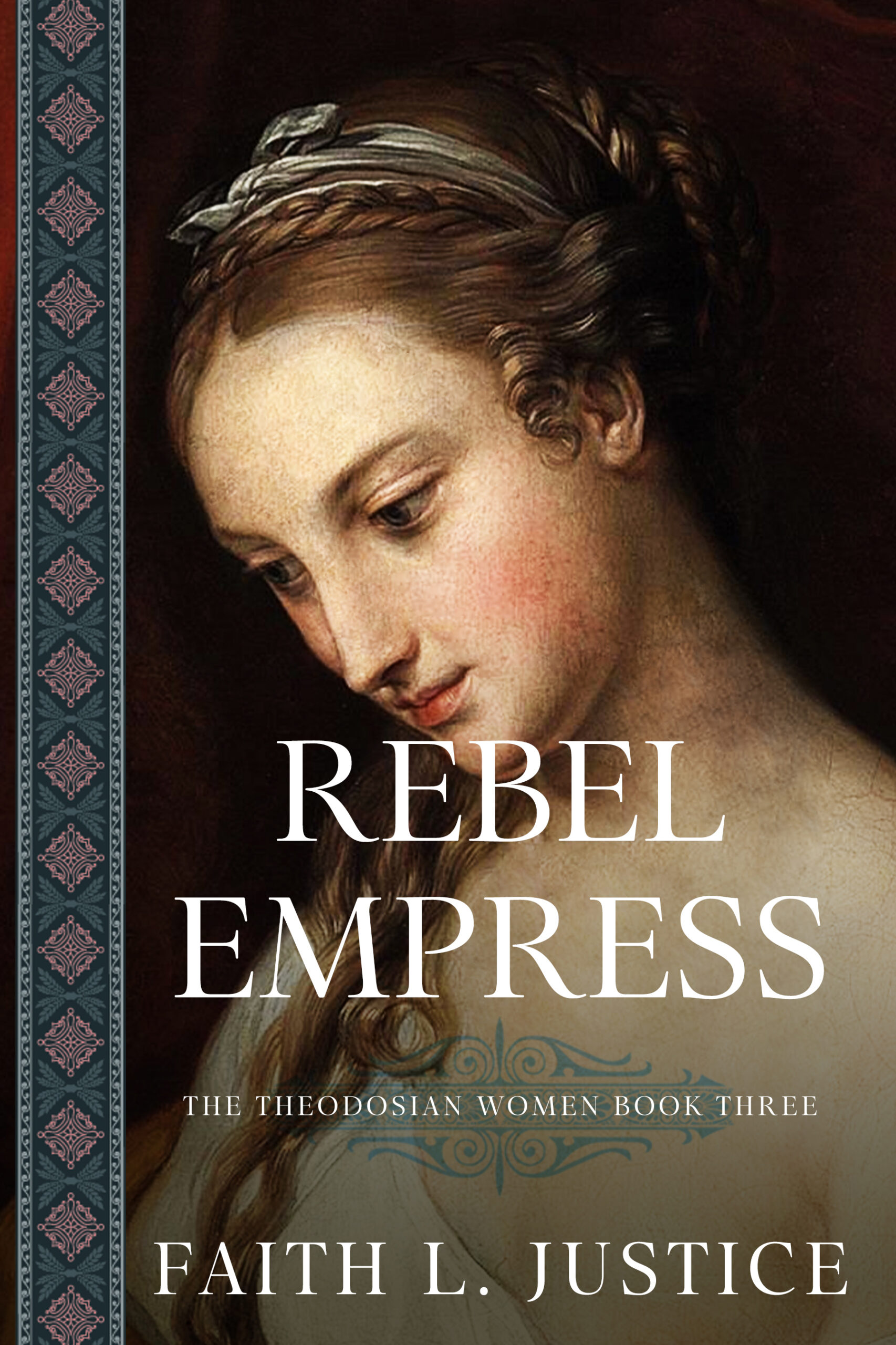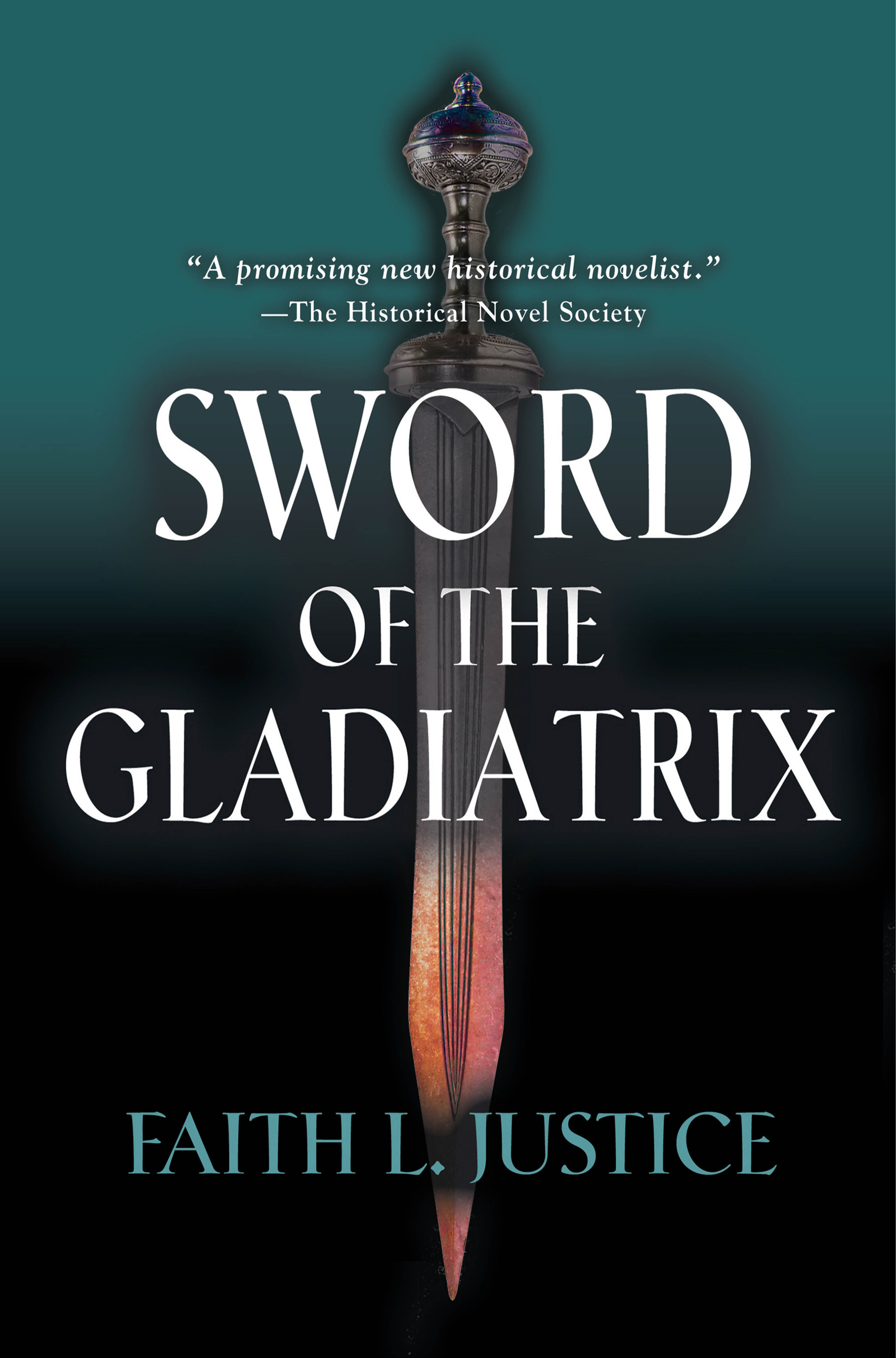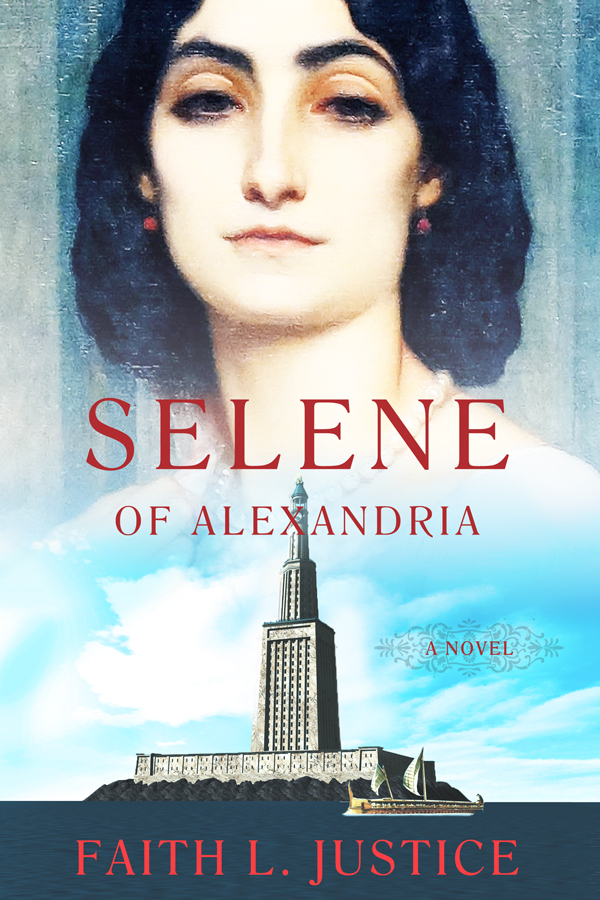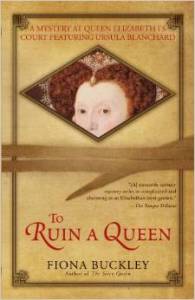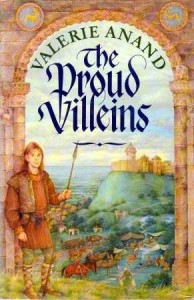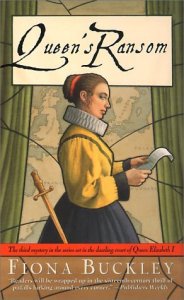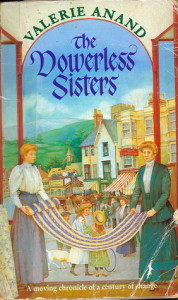Author Interview:
Valerie Anand (a.k.a. Fiona Buckley)
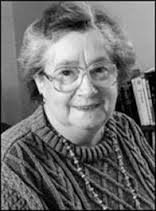 Popular historical fiction and mystery writer Valerie Anand brings past times and conundrums to life with fascinating characters, abundant detail and meticulous research in her twenty-one novels. In the U.S. she’s better known under her pen name Fiona Buckley for her historical mystery series set in the early years of Elizabeth I’s reign. Ms. Anand talked to me about her writing, love of history and feminist leanings from her South London home.
Popular historical fiction and mystery writer Valerie Anand brings past times and conundrums to life with fascinating characters, abundant detail and meticulous research in her twenty-one novels. In the U.S. she’s better known under her pen name Fiona Buckley for her historical mystery series set in the early years of Elizabeth I’s reign. Ms. Anand talked to me about her writing, love of history and feminist leanings from her South London home.
Faith L. Justice: Do you have writing in the blood?
Valerie Anand: For me, writing is a natural function, like breathing. No one can do without breathing and I can’t do without writing. I don’t know why. It satisfies a very deep need. At the age of six, just after I had really learned to write, I suddenly announced that I was going to write books when I grew up and I actually started trying, then and there, on a piece of doubled over paper, with a red crayon. The best moments come when I am trying to transmit something subtle, or very deeply emotional and difficult to express, and feel, after much writing and re-writing that yes, that’s it, I’ve got it right at last, that’s it.
My father was a good teller of stories to small children and so was his aunt, my great aunt Clara. They both made up tales to amuse me. On the same side of the family, I had a cousin (now dead) who although a scientist, was also keen on books and wrote a couple of science fiction paperback novels.
Going back to my father; he loved words. He lost his parents when he was only 14 and after that was cared for by an uncle who, poor man, did his very best for his nephew, but not very successfully. He had apprenticed his own son to the drapery trade so he did the same for my dad. He gave his son and his ward exactly the same chance, in fact. But whereas his own son prospered, my father just loathed drapery. His love of words made him want to work with them—in any capacity. In the end he left the drapers, took to doing part-time proof-reading for national dailies and eventually became permanent. The drive to work with words must have been hugely powerful because he took that risk in the middle of the slump of the 1930s, and was very hard up—in fact unemployed—for a time. Because of that, his first engagement broke up. Luckily for me! He met and married my mother later on.
I was born in 1937, before the war. When war broke out and my father knew he would have to go into the forces, he gave up our rented home in Kent and left my mother and me with his Aunt Clara in Leatherhead, Surrey, just south of London. Dad went into the RAF where he was an Armourer, and we lived in my great aunt’s bungalow which was out of London, but still prone to a few bombs. I can remember being carried into the garden and seeing the glow in the sky, the night the City of London burned.
I can also remember the V1 doodlebugs very well indeed. We used to crouch in the hall of the bungalow, between the strongest walls of the house and away from windows, listening to the beastly things as they droned across the sky, and waiting for the engine to cut out. If it stopped overhead, we were all right, because momentum would carry it onwards. If it stopped before it got near, anything might happen. Fortunately, nothing ever did.
I grew up, didn’t go to university, joined a publishing house as a secretary but turned myself eventually into a trade journalist, specializing at first in business systems and equipment. Later on I became an industrial editor, and ran the house magazine first for Heals, the furniture retailer in Tottenham Court Road, and later for Matthew Hall, a big engineering group. They did everything from put the services into pharmaceutical plants and new office blocks to putting the topsides on oil platforms. It was very interesting.
FLJ: What drew you to historical fiction?
VA: You may be surprised to learn that America—well, Hollywood—had a lot to do with my decision to write historicals. I didn’t like history at school, mainly because it wasn’t well taught. At school, they gave the impression that everyone in history was not only dead but mummified and covered in cobwebs as well. But at the age of fifteen, I went with another girl to see MGM’s film of Sir Walter Scott’s Ivanhoe—starring Elizabeth Taylor and Robert Taylor. And suddenly, there were all these medieval people who weren’t in the least mummified or cobwebby. They wore colorful clothes; they fought and feasted, fell in love, kidnapped each other, besieged castles…I walked into that cinema knowing that one day I wanted to write novels and walked out of it knowing exactly what kind of novel I wanted to write. Historical novels set in the middle ages. From then on, I couldn’t read enough medieval history. I didn’t tell my teachers, though. They would have wanted me to pass exams and spoiled all the fun.
FLJ: Did you read historicals after Ivanhoe or go straight to the “real” history?
VA: I read Ivanhoe then spent nearly every minute of my spare time sitting on the floor of the history section reading my way along the history shelves—the medieval bit. I took some of the books out and kept the whole thing a dead secret from my history teacher. I sank right to the bottom of the class. I didn’t want the teachers to know. It was too exciting and too private. In my talks I always say, “If there are any teachers among you, I’m going to preach sedition. It’s a mistake to hitch all learning to the examination wagon. There are such things as private voyages of the mind.” This was one of them.
FLJ: Why did you cross over to historical mysteries?
VA: It took a long time to get into print, but I just kept trying—for about 20 years, come to think of it —until I finally succeeded. Historicals, however, have a checkered track record. They keep going out of fashion. Sometimes they slip back in for a while but it doesn’t last.
Historical mysteries, though, seem to have got a grip, especially since Ellis Peters launched that marvelous Cadfael series. I noticed that one of my books, Crown of Roses, which is about the mystery of the princes in the Tower, did better than any other, and concluded that the mystery element might be part of the reason (the other part is that the mystery itself is so famous).
Well, I love reading whodunits anyway, so I decided to try this new field. I’m enjoying it.
FLJ: How do you research your books?
VA: I regularly do a talk on writing and research and the research bit takes about twenty minutes! To put it briefly: I have, of course, been reading history for interest and pleasure for years and years and have a reasonably sound general background on the parts which interest me most. When planning a specific book, I read works on the period and take notes, and then chase up such details as the layout of particular towns, styles of furniture, fashions of the time, laws in force, technologies which existed then, etc. by reading books on those subjects. I often visit a museum such as the British Museum, to look at artifacts; I sometimes visit places that I want to feature so as to get them right. And I use maps a lot!
My current Ursula Blanchard book To Ruin a Queen is set on the Welsh-English border, partly in a haunted castle. While researching this, I at one point had my sitting room floor completely carpeted with Landranger maps while I tried to work out whether one could or could not ride a horse from one point to another in a single day. Having concluded that it wasn’t possible, I decided to move my haunted castle 17 miles westward. Come to think of it, one of the satisfying things about being an author is the sheer power one has over one’s characters and settings!
I also sometimes interview people and have been known to write to historians to ask specific questions. What usually happens, in the middle of reading up on the period, chasing the facts I need and spreading the maps all over the place, then the urge to get started becomes too strong. Then I get about half-way through and I say “oh, I’ve got to find out about that” and I find out about it and it changes the plot, so I have to go back and all but start again. I just can’t seem to keep this from happening. It doesn’t seem to matter in the end. It just seems the urge to write overtakes the information available.
I always try to be accurate, because there is always someone out there who will write in and point out your mistakes.
FLJ: Why did you adopt a nom de plume for the historical mysteries?
VA: I didn’t actually want to change my name but Orion, the British publisher who launched the Ursula Blanchard series, wanted me to have a new identity for my new venture, and they insisted. I certainly don’t wish to keep my real name secret! I may write things under the name of Valerie Anand in the future, just as I did in the past, and would hate to lose out on readers who know me as Fiona Buckley and don’t realize that Valerie Anand is the same person! Or vice versa.
FLJ: Have you been able to make a living as a fiction writer?
VA: A lot of people said you’ll never earn a living as a writer, but I’m laughing last. It was hard in the beginning. I worked a 4-day week at the office and wrote the whole day on the fifth. It was physically very demanding. In 1989 I became redundant just as I received the contract to write the six-book series Bridges Over Time. I said, “Right, take the golden handshake, buy a word processor, convert the garage, and trust to luck.” I’m very pleased to say I’ve earned a living off my writing for quite a long time.
FLJ: How involved are you in the marketing of your books?
VA: I do occasional book signings. The marketing scene is not quite as lively over here as in America. I once went to a seminar run by the Society of Authors and there were a number of marketing Bobs on the panel. The authors gave them such a barraging that the whole thing felt rather like a rout or political meeting. The whole place was filled with authors who felt they were short changed. I do occasional book signings. The marketing scene is not quite as lively over here as in America. I once went to a seminar run by the Society of Authors and there were a number of marketing Bobs on the panel. The authors gave them such a barraging that the whole thing felt rather like a rout or political meeting. The whole place was filled with authors who felt they were short changed.
FLJ: Are there any differences between UK and American audiences?
VA: I think that American audiences are actually keener on history than British ones just now. Otherwise I wouldn’t say there was a great deal of difference.
FLJ: What’s your creative day like?
VA: We wake up at about 7, make tea, drink it in bed while reading the papers. Then comes a shower and breakfast and usually a short walk, just to get a little exercise and refreshment. If you do a sedentary job like writing, and work from home, and are not athletic any longer (I have had a double knee replacement), then there is a danger of not getting enough exercise.
Having done that, I settle down to work. At the moment, as it’s winter so I’m working in the spare room. I have an office in a converted garage but in winter it tends to be chilly and damp and my printer doesn’t like it! Nor do I – it’s hard to concentrate when your feet are freezing despite socks and fleece lined boots. In summer, though, the office in the old garage is wonderful. I can work with the door open and see my favourite rosebush all the time.
These days I usually work all morning, except for coffee, and perhaps for an hour in the afternoon. I used to work longer hours but found that the last hour or two was often not very productive. The work needed a lot of revising. I find I get just as much done by knocking off at midday or in mid-afternoon. I work four or five days a week.
FLJ: Who are your favorite authors?
VA: My favorite book of all time is J.R.R. Tolkien’s The Lord of the Rings. I belong to the Tolkien Society. Among my other favorite modern authors are Susan Howatch, Dick Francis, Robert Goddard, Terry Pratchett, Arthur C. Clarke, Joanna Trollope and, of course, Lindsey Davis.
Of classical authors, my favorites are Jane Austen and the Brontes, and in between, as it were, Dorothy L. Sayers, Agatha Christie, John Wyndham. All these have produced books which can be re-read and re-read.
FLJ: Have they influenced your own writing?
VA: I suppose they have in some ways. I think one does one learn—without knowing your learning—a lot from reading well-written books. You learn how to construct passages, how to create an atmosphere. You don’t know you’re doing it. You couldn’t describe how it’s done, but have absorbed a good deal. With Tolkien – which I’m rereading at the moment – I had to go through my current manuscript and remove all the references to clear water and merry meetings. He’s got such a vocabulary that is finds its way into your own work if you’re not careful. It catches like measles. And another writer, that’s almost forgotten nowadays, that I think is fantastic, is T.H. White. The language in The Sword in the Stone is catching too.
FLJ: How would you characterize the Ursula Blanchard series?
VA: I’ll start by saying what it isn’t. It isn’t dark, grim, violent or unflinchingly realistic (this usually decodes as full of descriptions of torture and disgusting executions but it’s historically accurate so it isn’t porn. Yes, it is!).
Another thing that the series isn’t, however, is ‘cozy.’ Ursula comes up against moral dilemmas, finds herself forced to accept responsibility for violent deaths (although I don’t describe them in detail), and also has to realize that there are times when the needs of a realm must take precedence over private happiness. At the end of Queen’s Ransom, she finds that Elizabeth and Cecil have betrayed her in the interests of England. At the beginning of the current book, she comes, reluctantly, to see their point.
Now to what I feel my Ursula Blanchard series is. It’s essentially a mixture of mystery and Elizabethan espionage and it is more concerned with detection and mystery-solving than with violent adventure. This is one of the reasons why the main character is a young woman.
I decided on that partly because most (though not all) lead characters in this type of novel are male and I wanted to be different. But I also felt that merely because Ursula is a woman, she can’t get out of difficult situations just by knocking her opponents down or felling them with broadswords. She has to use brain instead of brawn, and this is my favorite kind of thriller. I have a weakness for Agatha Christie and this is partly because Hercule Poirot depends on his little gray cells and not on violence, while Miss Marple is even less capable of violence than Poirot and most certainly has to work by thinking. You may be getting the feeling that I don’t like violence. That’s true. I don’t. Of course I accept that to fight in self-defense is legitimate (you can’t have people like Hitler just trampling all over everyone in sight and do nothing about it). But it is intelligence, not muscle, that makes human beings different from the animals.
In Ursula, I have tried to create an intelligent, normally feminine woman who is involved in espionage. She is often handicapped by being female, especially since she lives in the days of Elizabeth I, not Elizabeth II. She has to find ways round that. Her manservant Roger Brockley is there to do the bits which have to involve muscle. I have also tried to keep the tone entertaining. I want people to enjoy my books, to be amused as well as interested. I wish the books to be fun as well as accurate and—I hope—properly plotted and tense.
FLJ: Why did you choose the Elizabethan era?
VA: As far as I could see, most other historical whodunit series were medieval or ancient Egyptian. Elizabeth’s era hadn’t been much used. But it was a splendid era for espionage – there was so much going on and the people involved seemed to get such an extraordinary kick out of it. It was an interesting time, too, in other ways. It was the outcome of the Renaissance. New ideas were burgeoning; art, poetry, drama and music were developing fast throughout the whole Tudor era. It produced Shakespeare and Hans Holbein. Seamen were opening up new trade routes to Russia and beginning to explore America; technology and science were developing. And there was a woman on the throne, which somehow seemed to make Ursula and her unusual calling more believable. The possibilities seemed immense.
FLJ: How do Ursula and your other women characters reflect your views on women’s roles in history?
VA: Throughout history women have been largely undervalued, but their contribution was undoubtedly there. They don’t get recorded, when they must have been enormous influence behind the scenes. We’re half the human race after all. There must have been an awful lot of women who’s names haven’t echoed down the ages the same way as if they had been men. I think that in creating Ursula, and some of my other heroines, I have been trying to demonstrate what that contribution could be and also how women made it. So often, they had to dissemble so that although they were wielding influence, they weren’t seen to be wielding it.
Under the name of Valerie Anand, I did a six-book series called Bridges Over Time which followed the fortunes of one family from before the Conquest up to the 1960s. This was inspired by the life of my Great Aunt Clara, who was born in 1862, lived until 1957 and was therefore a living bridge over time. As a child she may well have known an elderly person who could just remember the end of the 18th century; she also knew me, and here I am in the 21st century. She made herself a successful businesswoman in the late 19th century and one way and another, was a fascinating character. I used her as the basis for Charlotte Whitmead, the lead character in the last book of the series, The Dowerless Sisters.
Charlotte Whitmead and quite a few of my other heroines in Bridges were influential in their fashion. Charlotte, like my great aunt, overcomes social and financial difficulties in early life to become a woman of influence and substance later on. In Women of Ashdon (which covered the late medieval and the Tudor periods), Susannah, though she has little choice in the matter of marriage, is the creator of the great house of Ashdon. In The Cherished Wives (18th century), Lucy-Anne, who starts off as a put-upon mouse of a wife, ends up as the most powerful figure in the family, who rushes to the rescue when her granddaughter is being bullied by Lucy-Anne’s son. But because the son will not accept authority in a woman, not even his mother; Lucy-Anne has to use guile to get what she wants.
FLJ: You seem to have a strong feminist streak. I believe you call it “feminism of the mind.”
VA: That sensibility began in the 1950’s when I was young. 1960’s feminism seemed to be about women being free to go around and have one-night stands and all the rest of it. I never wanted to do that. But I did want was to be able allowed to think for myself and not be confronted with this dreadful business of you must do what the men tell you because they are men. Women must not surrender their intellectual integrity. We have exactly the same right to live our lives by the light of our intelligence, to be free to learn all we can, to study if we want to, to develop an intellectual life and not to be told we shouldn’t do this by anybody.
I find that marriage clause “to obey” appalling. A woman should be free to use her intelligence to get out of an abusive relationship or earn a living if necessary. It’s important to develop intellectual resources. If you have intellectual interests and mental resources you’re not so stricken when the beauty goes and you get older. It won’t matter so much then, you’ll have something else to do.
Oh, well, I will go on for just a little while more. It is to some degree relevant to my work (I’ll explain why in a moment). If you argue with one of the kind of clergymen who believes in that obey clause, he will assure you that the woman doesn’t have to obey if she is told to do something she knows is morally wrong. He will then think he has answered your protests completely. He has done nothing of the kind. It might not be a question of wrongdoing. What if a man insists on investing most of his own and his wife’s joint savings in a dubious gold mine or the railway system in an unstable country, and demands that his wife should ‘obey’ by signing the necessary documents? He probably isn’t a wrongdoer, just an idiot. Why on earth should intelligent women have to be dominated by foolish men? Intelligence and foolishness are about evenly distributed between the sexes, after all.
The relevance is because in some of my books, I have taken a swipe at that obey clause. In the final book of the Bridges series, The Dowerless Sisters (19th and 20th centuries), one old-fashioned husband, horrified to discover scandal in his wife’s family, orders her to cut off contact with them and claims that he has the right to do so. The wife, of course, refuses.
Oh, and the argument ‘But if you take up employment, you obey your employer, don’t you?’ is just as bad as the one about wrongdoing. Marriage and employment aren’t parallel. You don’t promise to stay with your employer till death do you part; the boss has usually had to work his way up and earn his position; you have the option of taking the same career path and challenging him for his job; and he pays you, anyway. In that lovely quote from Gilbert and Sullivan’s Mikado, “No Money, No Grovel.” If offered a better deal somewhere else (more money for less grovel), you are free to go.
Oh dear, I have gone on a bit, but you did ask!
FLJ: How has that applied in your own life?
VA: Mother believed the life of the mind was only for men and wanted me to be very domesticated. But as a young woman, fired by my father’s accounts of going up in planes during the war, I learned to fly light aircraft. I didn’t go on with it after I’d got my private pilot’s license. It was too expensive! I just wanted to have done it and I did enjoy it. I used some of that experience in The Dowerless Sisters. I did my training at Biggin Hill, the famous fighter station.
I took my time getting married. In the fifties, over here, marriage was very repressive. One really was expected to knuckle under and ‘obey’. I had no intention of doing anything of the kind. Also, my background, though very loving was in some ways very narrow. I wanted wider horizons and wasn’t sure how to get them. Then, at the age of 31, after my father had died, I went dancing with some other girls, met Dalip Singh Anand, from northern India and that seemed to be it. The spark leapt the gap of race and culture instantly, and I have never regretted it. We married on 26th March 1970. It widened my horizons most satisfactorily. I now have a whole family in Delhi and Chandigarh and they have made me most welcome.
We have never had children but it hasn’t worried us.
FLJ: Has that widened horizon influenced your writing?
VA: I’ve written a couple of books about India. One was a little romance To a Native Shore. The heroine married an Indian, moved there, and was quite homesick. She had to come back to England for some reason and hesitated about returning to her husband, but it takes time and various things happen. In the end she realizes that although she will never break the links with home, she does want to go back to him. The other one, West of Sunset, was a much darker book because it took place in Delhi after the awful riots in 1984 after Mrs. Ghandi was assassinated. It’s about the fortunes of Indian immigrants in England. That incident changed lives and attitudes here.
FLJ: A reviewer has described your characters as amusingly modern. Do you agree?
VA: Yes, up to a point. I do it because that way, they will be easier for modern readers to identify with. I have read several historical novels in which the author has tried hard to make the characters be completely people of their time, and it never really works. The characters are alienated from the reader.
There’s also the point that when they were alive, people in history thought that they were modern, and after all, basic human nature doesn’t change much. Language changes, fashionable ideas change, the state of knowledge changes, but needs and emotions stay much the same. Take a look round the world now. Round the globe there are many different cultures. The difference between them is quite as great as the difference between the cultures of the 21st century and, say, the 18th. Greater in some cases! But good old human nature is there under the surface layer, just the same. I’ve even lived through quite drastic changes in culture. The world of the 1950s, in which I grew up, was very very different from the world of 2001. Yet quite a lot of the people who occupied those worlds are the same people! The words “amusingly modern” imply an anachronism, but that may be more apparent than real. Sometimes I think that the authors who try to make their characters too true to their era, lose their essential humanity.
FLJ: Where do you get your characters and plots?
VA: So many of these things happen at a subconscious level that this is difficult. Plots just grow and so do people. But I’ll try.
In the case of Ursula, I study Elizabethan history, pick out events and plots that may be useful and try to work out ways in which she could get involved. An outline emerges and bit by bit I fill in the details. The needs of the plot dictate the characters. Well, that’s the way I do it usually. In To Ruin a Queen, the setting on the Welsh border came into my mind because some cousins took me on a trip there. I looked at the Welsh mountains and the castles round the border and I found the atmosphere so fascinating that I at once wanted to set a book in the district. It must have wild mountains in it, I decided, and a grim castle—better still, a haunted castle.
I read up the local history and was reminded that there was once a very powerful family there called the Mortimers. I invented descendants for a Mortimer who didn’t actually have any, decided that he might want to restore his family’s fortunes and then made him choose a highly dubious way of doing it.
Meanwhile, I had left Ursula in France, so I had to invent a way of getting her back to England. Bit by bit, I built up a scenario whereby Elizabeth and Sir William Cecil had been alerted to the existence of a possible plot, decided that they needed Ursula back, and found a means of doing so. And so the plot developed.
In Bridges, I first of all by created a vast family tree. I gave very long lives to some individuals and then invented life histories for them suitable to their era. I gave them names almost at random, limited only by the names in use at the time, but in some way, certain names seemed to suggest certain personalities. The life histories just grew, and again, the needs of the plot would dictate what other characters were required.
FLJ: You seem very involved in causes. Is this an “antidote” to the isolation of writing?
VA: When I became redundant from my job, I took a deep breath and decided I would become a full-time writer. I found it lonely and restricted in some ways. My principal spare time interest is the Exmoor Society. I was taken on holiday to Exmoor (on the south side of the Bristol Channel) as a child, loved the place and went on loving it. I used to go down there to ride, for there is no better way to explore the moorland and the valleys round it. Eventually I joined the society which is dedicated to its preservation and to encourage people to study it and care about it. There is a London Area Branch, and I am on the committee of this.
I also belong to Altrusa, a US based association mainly of professional women, who raise money to further the health and education of women in developing countries. There are numerous Altrusa groups in England and there is one near where I live. One of our projects is to provide classes in literacy and tailoring for village women in one part of India; another is to back up health and education projects in Ethiopia where girls are often married so young that they are injured by having children too early. The damage can be put right, but there is as yet only about one clinic in the country!
In addition, I enjoy belonging to and attending some of the events run by the Society of Authors, The Crime Writers’ Association and the Romantic Novelists Association. The latter actually invited me to join them; I can’t think why. In one of the Bridges books, (The Ruthless Yeomen) there is a lurid description of the Black Death and because he begged not to be put in a plague pit my heroine tries to bury her father-in-law in the onion patch. In the previous book (the first of the series, The Proud Villeins), after William the Conqueror has destroyed all the food and houses across a great stretch of northern England, some of my characters stagger through the snow in search of safety and end up eating those who die on the way (historical fact—I didn’t invent it). How romantic can you get?
FLJ: Any advice for writers trying to sell their first novel?
VA: It’s never easy. One obvious thing is to polish the novel as thoroughly as possible, then rest it for a while and think of something else (or start another novel!) and then go back, coming to the work from a more objective distance, and polish it again. Then try your best to get an agent.
I managed it because I had written to an historian (Professor Frank Barlow of Exeter University) about a detail of Anglo-Saxon England and he not only answered me, but put me in touch with Hope Muntz, an expert on the era and the author of a best-selling novel called The Golden Warrior. Hope Muntz gave me much useful information and she also, very kindly, read the MS of my first book, which was called Gildenford and was set in pre-Conquest times, and then recommended me to Scribners!
Later on, I acquired my agents, here and in the US, because I already had books in print. Starting out is not easy. Sheer determined obstinacy is a useful trait in a writer.
FLJ: Any new projects coming up?
VA: A further Ursula is in preparation. I also have ideas for other types of book and will give some thought to that when I have finished the current draft. I would like to tackle a modern mystery series, perhaps set in the west of England, which I know very well. But all this is still just in my mind.
© 2008 by Faith L. Justice
Author’s note: I interviewed Ms. Anand after the publication of her third Ursula Blanchard historical mystery Queen’s Ransom in the US. Since then she has published (as Fiona Buckley) eight more in this series. She’s written three other series under her own name. Portions of this interview appeared in:
- “History’s Mysteries: How Valerie Anand Brings Them To Life” in The Copperfield Review, 2002
- “Sixteenth-Century Cloak and Dagger: Valerie Anand on Historical Mysteries” in iUniverse.com, 2000
